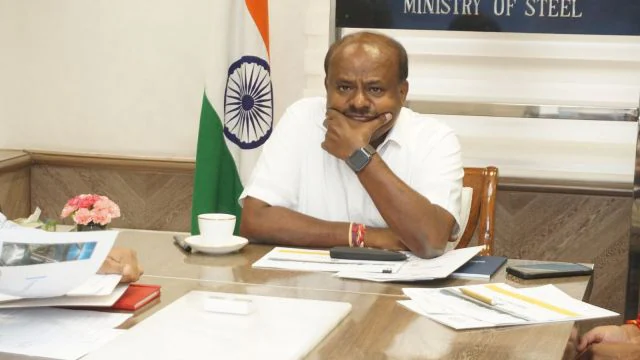The decision by the Karnataka government to halt mining operations in the Devadari forest, despite Union Minister H D Kumaraswamy’s approval, has sparked a heated debate on environmental conservation and economic development. Here’s a closer look at the contentious issue and its implications.
Context of the Devadari Forest Mining Proposal
Located in Ballari district, the Devadari forest became a focal point for controversy due to the proposed mining project by Kudremukh Iron Ore Company Limited (KIOCL). The project aimed to extract iron ore near Sandur, raising concerns about its impact on the forest ecosystem and local communities.
Union Minister’s Approval and Public Reaction
The approval of the mining proposal by Union Minister H D Kumaraswamy met with strong opposition from environmentalists and citizens alike. Supporters of the project argued for its potential economic benefits, including job creation and revenue generation. However, critics voiced concerns over the environmental consequences, particularly the potential loss of approximately one lakh trees.
Karnataka Government’s Intervention
Responding to environmental concerns, the Karnataka government intervened by blocking the transfer of forest land to KIOCL for mining purposes. This decision underscores the state’s commitment to environmental conservation and sustainable development practices, prioritizing the preservation of the Devadari forest’s biodiversity.
Environmental Impact and Community Concerns
The Devadari forest plays a crucial role in maintaining local biodiversity, climate regulation, and water resources. Environmental activists warned that mining activities could disrupt these ecological functions, posing long-term risks to the forest ecosystem and the livelihoods of nearby communities dependent on forest resources.
Balancing Economic Growth and Environmental Conservation
While economic development is essential, the Devadari mining controversy highlights the need for balanced approaches that integrate economic progress with environmental stewardship. The debate underscores the complexity of sustainable resource management and the importance of adopting responsible mining practices and stringent environmental regulations.
Future Directions and Policy Considerations
Looking ahead, Karnataka faces the challenge of devising comprehensive policies that promote sustainable development while safeguarding natural ecosystems. The decision to halt mining operations reflects a growing awareness of the need for ethical resource utilization and effective environmental governance frameworks.
The controversy surrounding the Devadari forest mining proposal underscores the critical need for inclusive dialogue and informed decision-making in environmental governance. By prioritizing conservation efforts and embracing innovative solutions, Karnataka can pave the way for sustainable development practices that balance economic growth with environmental protection.
This blog sheds light on the evolving discourse on environmental sustainability and the imperative of preserving natural habitats amidst developmental aspirations.

